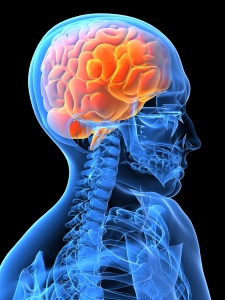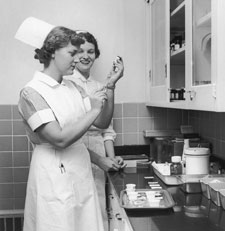 New classes start on Monday, Primary Care of Adults and Pediatric Primary Care. Last semester was such a marathon with three heavy classes, going to campus out-of-state for the skills labs for a week, and working, too. I finally have come down and am starting to think a little more clearly. I also realize I am suffering from CRS. (For those of you scratching your heads: Can’t Remember S**t.)
New classes start on Monday, Primary Care of Adults and Pediatric Primary Care. Last semester was such a marathon with three heavy classes, going to campus out-of-state for the skills labs for a week, and working, too. I finally have come down and am starting to think a little more clearly. I also realize I am suffering from CRS. (For those of you scratching your heads: Can’t Remember S**t.)
I visualize walking into an exam room with a patient and the parents waiting for me to do something useful for their little tot. The door closes behind me, and the realization hits that I have NO CLUE as to what to do. Pediatrics would have to be the first rotation. I have dealt mainly with older folks for most of my nursing career, and now being one myself, I can relate to their problems. Dealing with the little guys has not been an issue for me for YEARS. My own kids are in their 30’s for crying out loud.
So, groping in the crowded closets of my brain, I try to retrieve all the facts I have been busily stuffing in over the last 3 terms. The labels seem to have fallen off the little boxes. The information is in here somewhere, but seems inaccessible. This is WAY not good.
It never seemed hard to learn and remember things when I was younger, is it true that you can’t learn as easily when you are older? I am somewhat comforted by an article that reports it may take longer to learn new facts when you are older, but you are better at processing the significance and using the information you learn than young people. Okay, that part is good. So, now the question is, what to do to help learn and remember what I need to.
An article in the Harvard Women’s Health Watch has ideas on how to improve memory for the older person. The first recommendation is to maintain health, Uncontrolled diabetes, hypertension, kidneys disease have all been shown to reduce cognitive function. Exercise is mentioned in this category. I am healthy and we try to ride bike most days for a half hour or more, so that is covered (though hot Florida summers will put a crimp in the bike riding).
Next they want you to keep the brain active by taking a course and learning something new. That definitely is covered and then some.
I like the next suggestion, to use all the senses. Odor is specifically mentioned. Evidently, if there is a pleasant odor while learning something new, you are better able to recall the new material even without the presence of the odor when recall is attempted. Half a dozen scented candles, please! In the bag.
They want you to think positive and not believe the myth that “old dogs can’t learn new tricks”. This old dog is definitely thinking positive. Becoming a nurse practitioner is a goal I have had for a long time, and had to delay for a while. Nothing is going to stop me now. Negative thinking is stinking thinking!
Next, we are not to over-strain the brain on unnecessary things. Like, get organized, dude. Use lists, electronics, designated key and glasses spots, and unclutter the desk. Well, that might not happen so fast. I am a firm believer in a cluttered desk being the sign of a great mind… Oh, you don’t buy that?… Sigh, okay, declutter the desk coming up.
Repetition, repetition, repetition. Say it out loud or write it down. Facts are easier to remember if repeated. And, the repetitions need to be spaced out for better retention. Check.
Use mnemonics. You know, like RACE for fires: rescue, alarm, contain, evacuate. This has never been one of my favorite devices. I am more visual, pictures and hands on work better than a list of letters like that. We are all individuals and have to tailor things for our own use.
Daniel Schacter, a Harvard psychology professor and researcher wrote a book called The Seven Sins of Memory: How the Mind Forgets and Remembers (Mariner Books, 2002). He describes common memory flaws, and the ones most common for older people are transience, absent-mindedness and blocking.
- Transience is the losing of a new memory if it is not recalled. This reinforces the need for repetition in order to remember.
- Absent-mindedness refers to forgetting because you didn’t pay attention in the first place. I guess that means no studying with the TV or radio on. Focus!
- Blocking refers to that tip-of-the-tongue feeling, You know you know it, but can’t quite get it out. This is caused by a new similar memory blocking the retrieval. With a little persistence this can be over-ruled and the memory brought out.
Bottom line. I will have to work a little harder, set things up for study with a little more forethought, and repeat more than I did when younger. The good part is the fact that my judgement and understanding is better than it was years ago thanks to many experiences over the years. It’s all good. I’m ready for the next semester. Bring it on.
Thanks Harvard.
References:
Strauch, B., (2009). How to train the aging brain. New York Times December 29, 2009.
Harvard Women’s Health Watch (HARV WOMENS HEALTH WATCH), 2010 Feb; 17(6): 1-3


